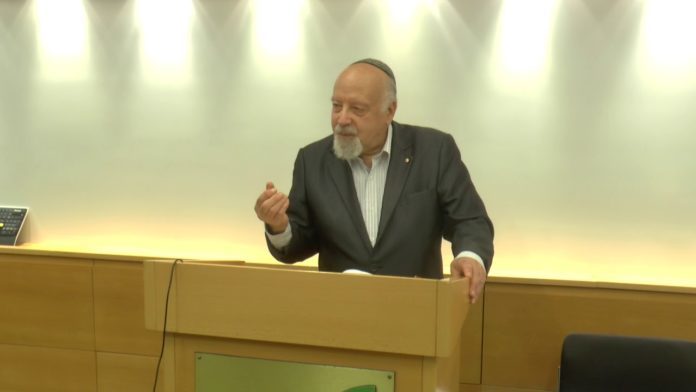
TALKING ABOUT TALK
It’s strange to have a Torah portion that most people take metaphorically, but that’s what happens with M’tzora.
Though the actual theme is leprosy, and the medical science of the Torah is interesting in itself, the sages said that its purpose is to warn us of the unpleasant consequences of evil talk, which harms the one who says it, the one that hears it and the one about whom they are speaking.
It reminds me of a veteran rabbi who said that one of the best ways to prevent evil talk is to go to shule on Shabbat. Not just because people who know how to behave in shule stop themselves chatting with their neighbours, but not merely because it’s inappropriate but because when you’re busy listening to the Torah reading you have no time to get into conversations which tend to turn into exchanges of gossip.
The Midrash says about the laws of leprosy that they are more of a blessing than a curse. The explanation might be that it does everyone good to have a warning about using the gift of speech wisely.
M’tzora is a blessing in that it encourages us to weigh our words and find nice things to say about everyone.
RICH & POOR
The Torah is worried about people who cannot afford to bring offerings to the altar (Lev. 14:21) and offers a more economical way for poor people to fulfil their obligation.
The Chafetz Chayyim says that the terms rich and poor can be understood as referring to people who have or lack a record of Torah learning. No matter how much you have studied (or have not studied) you can still serve God.
This applies to communal service in a wider sense. Whoever you are there are still many ways in which you can bring strength to the community. You can give time, you can give talents, you can encourage other people to join you in davening, studying and keeping the mitzvot.
THE TALE OF TWO CITIES – AN ARTICLE FOR YOM ATZMA’UT
We Jews go back a long way. Our history is intertwined with the Holy Land, with times of greater closeness and times of greater distance.
The movement to unite us with the land has, as Zvi Werblowsky said, a name that features a city.
Zionism is the vision of Zion. Zion is Jerusalem, two names for the one city.
Isaiah said, “Out of Zion will come Torah, the word of the Lord from Jerusalem”. Yehudah HaLevi said, “Zion, will you not ask about the well-being of your exiles?” The Siddur says: “May our eyes behold Your return to Zion”.
This is not just nationalism. Nations who try to eliminate us face bigger odds than they imagined: not field-marshals or fire power, not armies but the Lord of Hosts, not weapons but the Divine Word.
Tell that to the United Nations and they say they have no time for dreamers, but it was dreams that created the UN itself.
As the poet says, breathes there a man with soul so dead that he can’t see that Zion is not just bricks and mortar but mystique and poetry?
Cut our city in two and you cut our heart.









